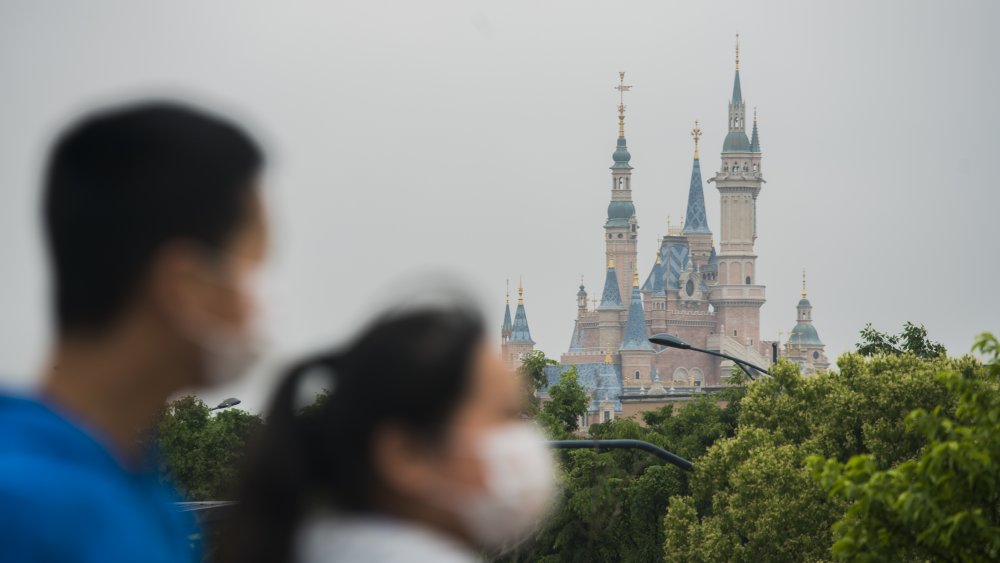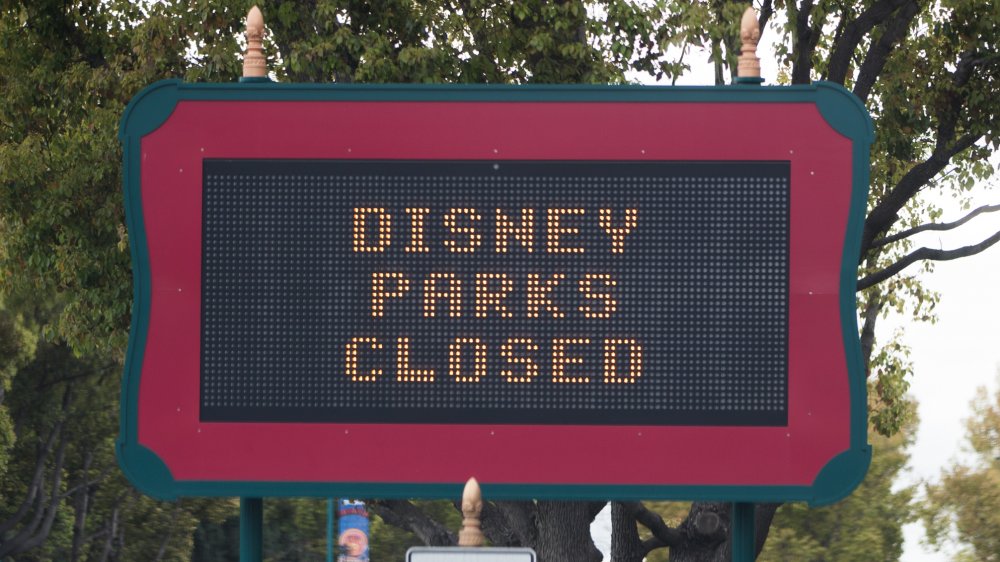Here's How Much Disney Parks Could Lose Due To The Pandemic
The good news is that money can't buy happiness, so the joy quotient at Disneyland shouldn't be affected. The bad news is, money can — and has — paid for every other aspect of Disney's iconic vacation spots, so the rest of the experience is in a lot of trouble. According to a report by the Orange County Register, Disney theme parks around the world are predicted to lose as much as $21 billion, through the year 2022, as a result of closures due to the coronavirus pandemic.
Disney closed all of their parks indefinitely in March of 2020, citing the problems inherent in maintaining social distancing practices and virus-free conditions in a place built on hugs, crowded lines, and roller coaster vomit. While some analysts believe that the parks could reopen by July 1st, others are skeptical of the date, while some fear that reopening will do little to alleviate the parks' financial problems.
At least Kylo Ren has his PPE figured out
The issue isn't just with the virus itself, but with the public's perception of safety. Speaking with the Hollywood Reporter, Wall Street analyst David Miller explained it like this: "By our estimation, 85 percent of the attendance base in Orlando — in a normalized environment, forget about the virus for a second — comes from out of state or out of country. Which means you pretty much have to fly there ... You have to be comfortable No. 1 with getting on a plane ... and then you have to be comfortable actually going into the park and hope that it is a fairly sterile environment and that people will hopefully adhere to safe social distancing." In short, Disney World (and other Disney parks) may be in a bad way for as long as people are nervous about being around other people.
That said, NPR reports that Shanghai Disneyland, set to reopen on May 11th, sold out of tickets within minutes of making them available. The amusement park is implementing strict social distancing guidelines, requiring visitors to wear masks when they're not eating and scanning each guest's mandated QR code-based tracking status to ensure that they aren't potentially contaminated. It's a long, Orwellian path to tread, with potential scandals on the horizon, but those mouse-shaped ice creams aren't going to eat themselves.

